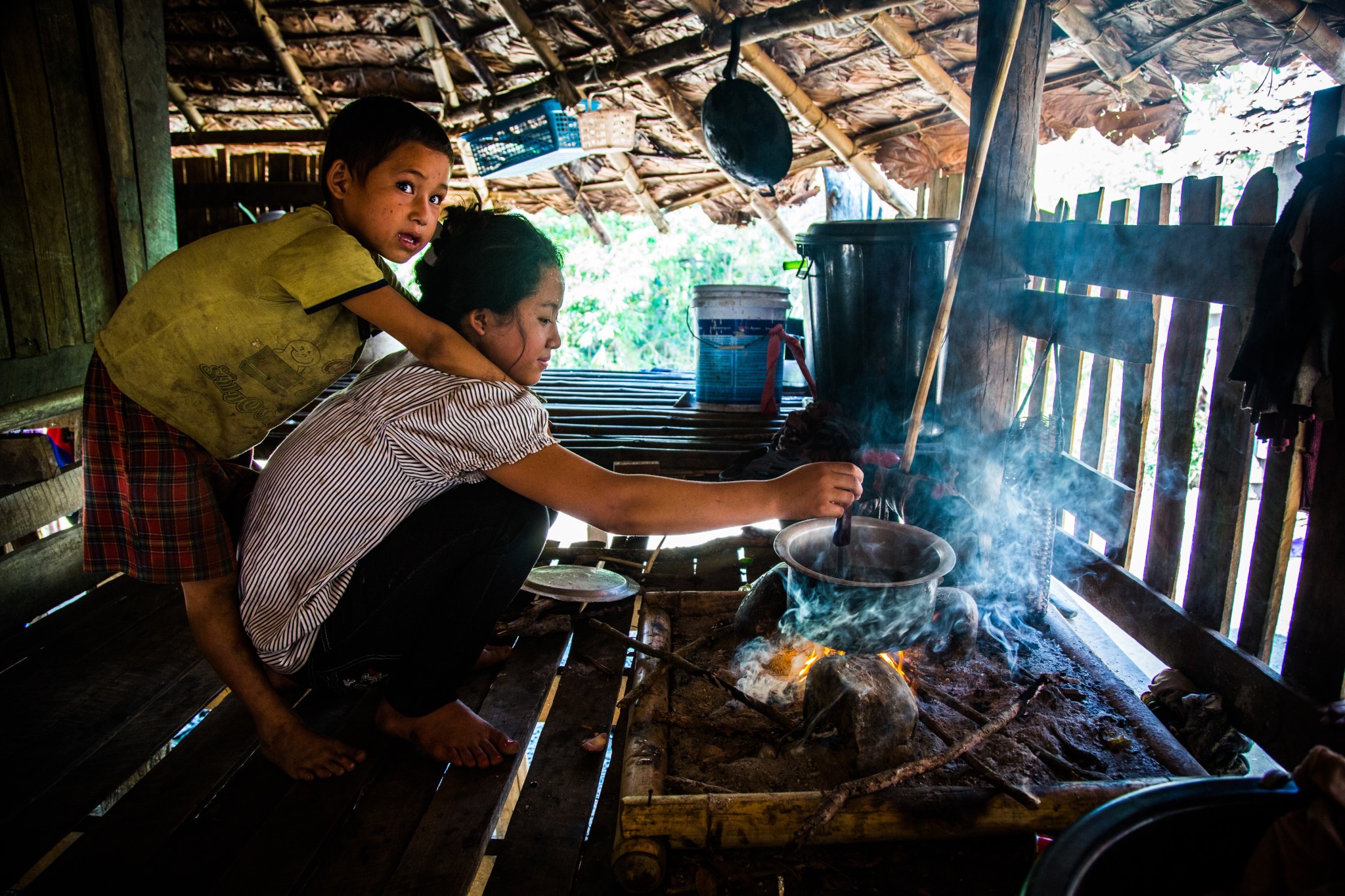The Frozen Stateless and the Fire
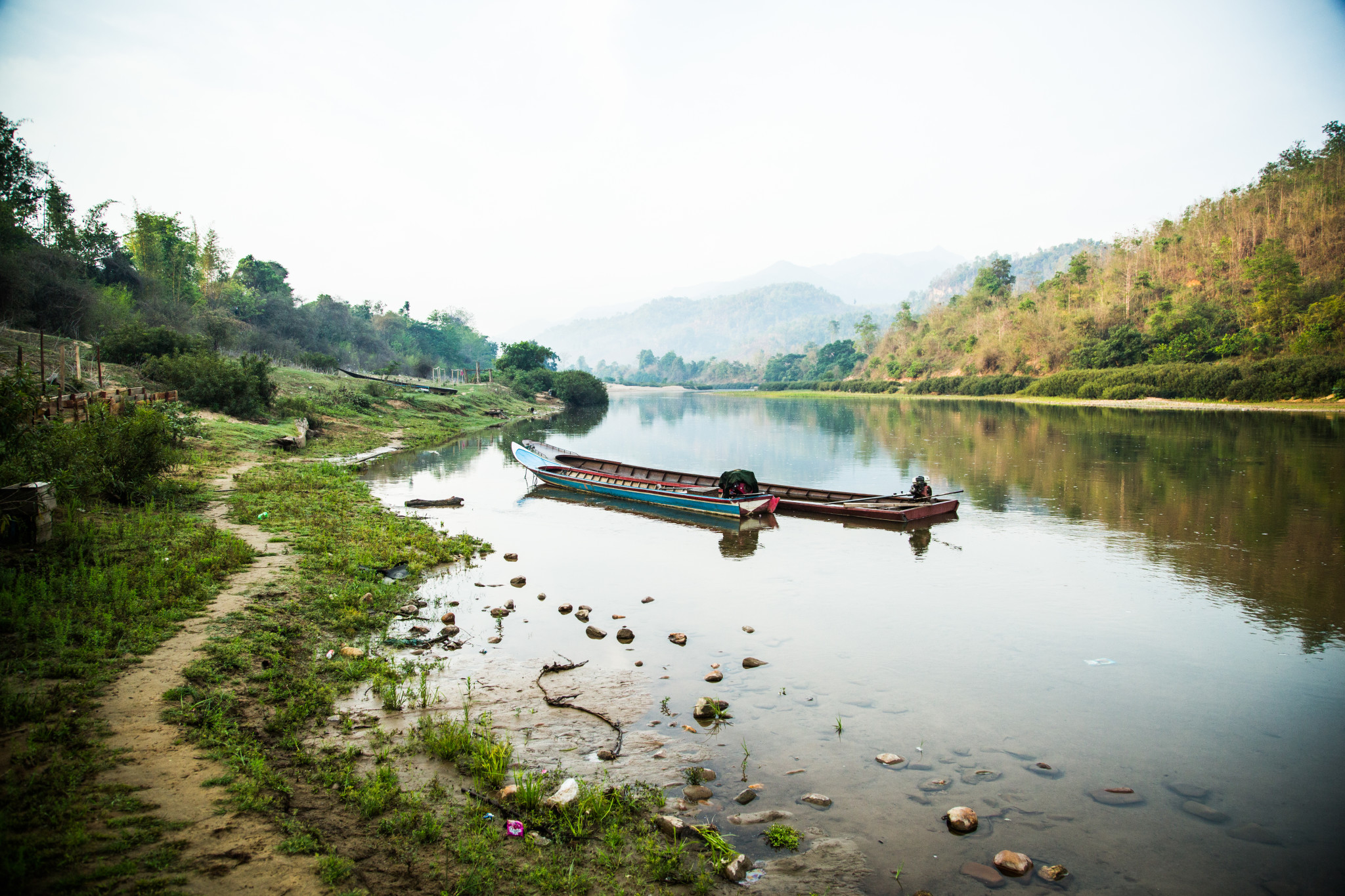
*Shot while on assignment for a global, faith-based nonprofit. They retain all rights.
Sunsets on the Thaunggin Moei river are beautiful.
As the sun sets in beautiful shades of red and orange, native Karen tribespeople wade across the shallow parts of the river holding worn backpacks and baskets above their heads. A family gathers at the edge of the river, washing clothes and bathing in the gentle current. A naked boy runs past me, stops, turns around and stares. In this village western visitors are rare. I’m standing on the border of Thailand and Myanmar, in no-man’s-land between these two countries. There is no fence, no gate, no patrolling soldiers: just a slow-moving, zig-zagging river next to a small village.
There is no fence, no gate, no patrolling soldiers: just a slow-moving, zig-zagging river next to a small village.
Many Karen villagers cross Thaunggin Moei river twice a day, balancing a life split between two countries. Some people cross to find daily work, others to import/export natural resources. I sit on the river bank with two local, Karen English teachers as the rosy sun disappears behind a large, jungle covered hill. In broken English, we chat about their profession, what country they were born in, and whether it’s normal for so many people to cross the river at dusk. Mosquitoes buzz around our heads and children can be heard laughing and splashing off in the distance. At one point a red and blue pickup truck crosses the river slowly, loaded down with thin bamboo beams used for building huts. The water rises to the bottom of the truck’s doors as the tires cut the slow-moving water gracefully. The driver looks calm and relaxed as if this is a normal daily commute.
Karen tribespeople are estimated to make up 7% of the population in Myanmar (Burma). The border of Thailand and Myanmar is riddled with Karen refugee camps and small villages. It’s estimated that some 200,000 Karen have been driven from their homes in Myanmar since the 1940s (Institute of Asian Studies, 2011). Many of these people have been pushed right up against or across the border into neighboring Thailand. Back in the 1940’s the Karen people joined a coalition of other minority groups that aimed to overthrow Myanmar’s military dictatorship.
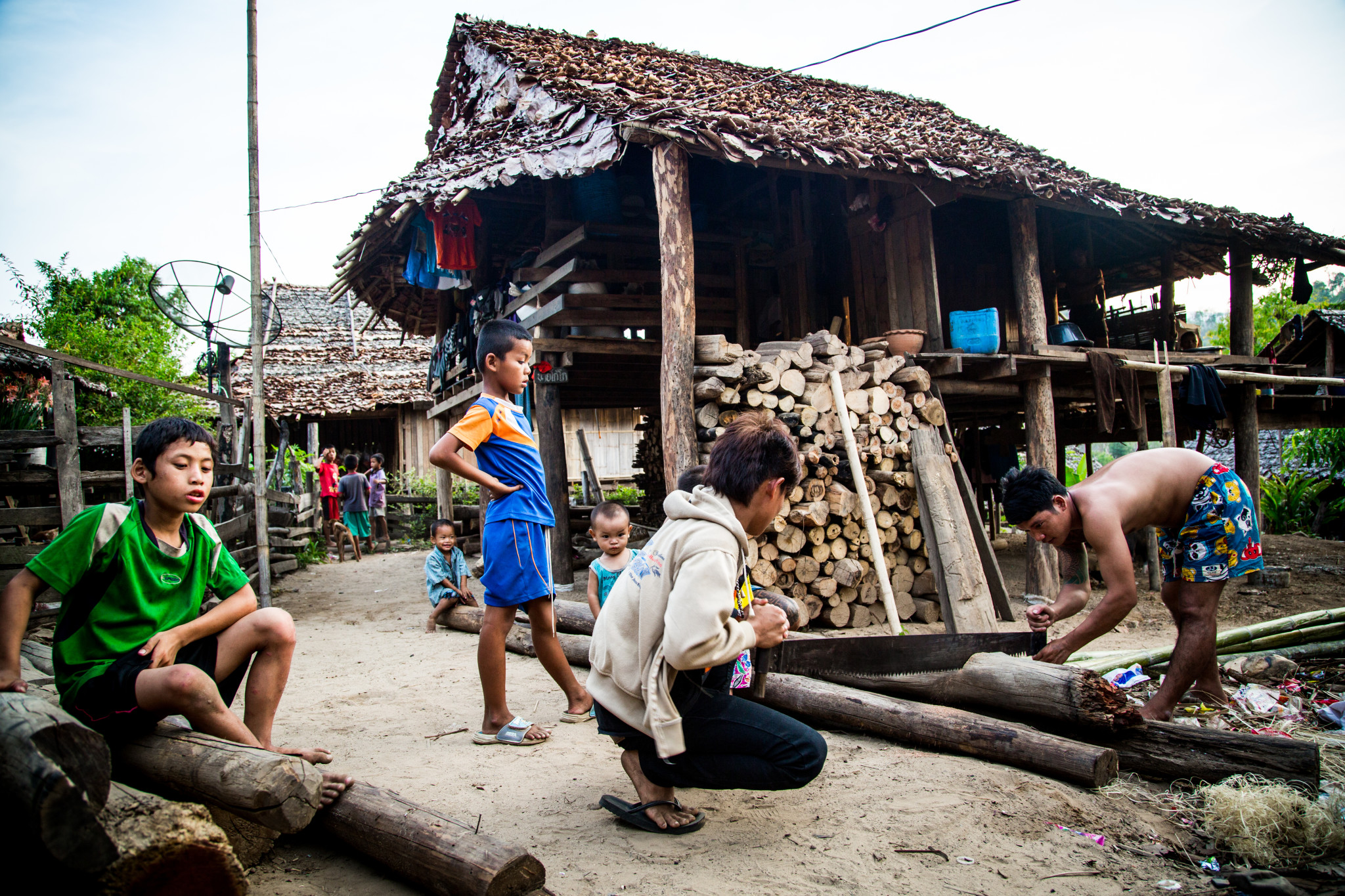
In 1976 the Karen changed their philosophy in hopes of ending the conflict: instead of the solitary goal of overthrowing the Myanmar government, the Karen would settle for federal representation. By the 1980s the Karen were still without political representation and the insurgency forces continued to grow, estimated to be around 20,000 by the end of the 80’s. Myanmar’s military was quickly expanded to fight the threat to the central government. Over the next two decades, the Karen forces were aggressively stamped out. By 2006 some 400,000 government forces were fighting a diminished 4,000 Karen in Eastern Myanmar.
Many news agencies, nonprofits, and human rights groups have accused Myanmar’s army of ethnic cleansing, systematic rape, slavery, conscription of child soldiers, massacres, destruction of civilian villages, and the destruction of Karen food and medical services (New York Times, 2014). As recent as 2010 the Burmese army burned down some 70+ Karen homes in Eastern Myanmar (Free Burma Rangers, 2010). Visiting a small village on the border, watching people go about their lives peacefully, it’s easy to forget that the conflict carries on just across the river, in parts of eastern Myanmar.
Myanmar made news in November of 2015 with a (somewhat flawed) democratic election. Many western critics admitted that although flawed, the election was a huge step forward in the democratization of a nation that has been under military rule for 50+ years. When the polls closed the National League for Democracy (NLD) had won by a landslide. The NLD won a majority of 2/3 of the seats in Parliament, which gives them the power to choose the next President (BBC, 2015). Put simply, the citizens of Myanmar chose democracy.
The people I met on the border of Thailand and Myanmar will see little impact from this historic vote though. In a way, they sit in between two countries, like Tom Hanks in The Terminal. The majority of Karen people living on the Thai side of the border are stateless. They’ve already been displaced from decades of war, but Thailand will not offer them Thai citizenship. And being Karen, returning back across the border to a hostile Myanmar government offers little benefit.
Having to choose between raising children in a conflict zone and being strangers in a land that doesn’t accept them, Karen tribespeople pick the latter.
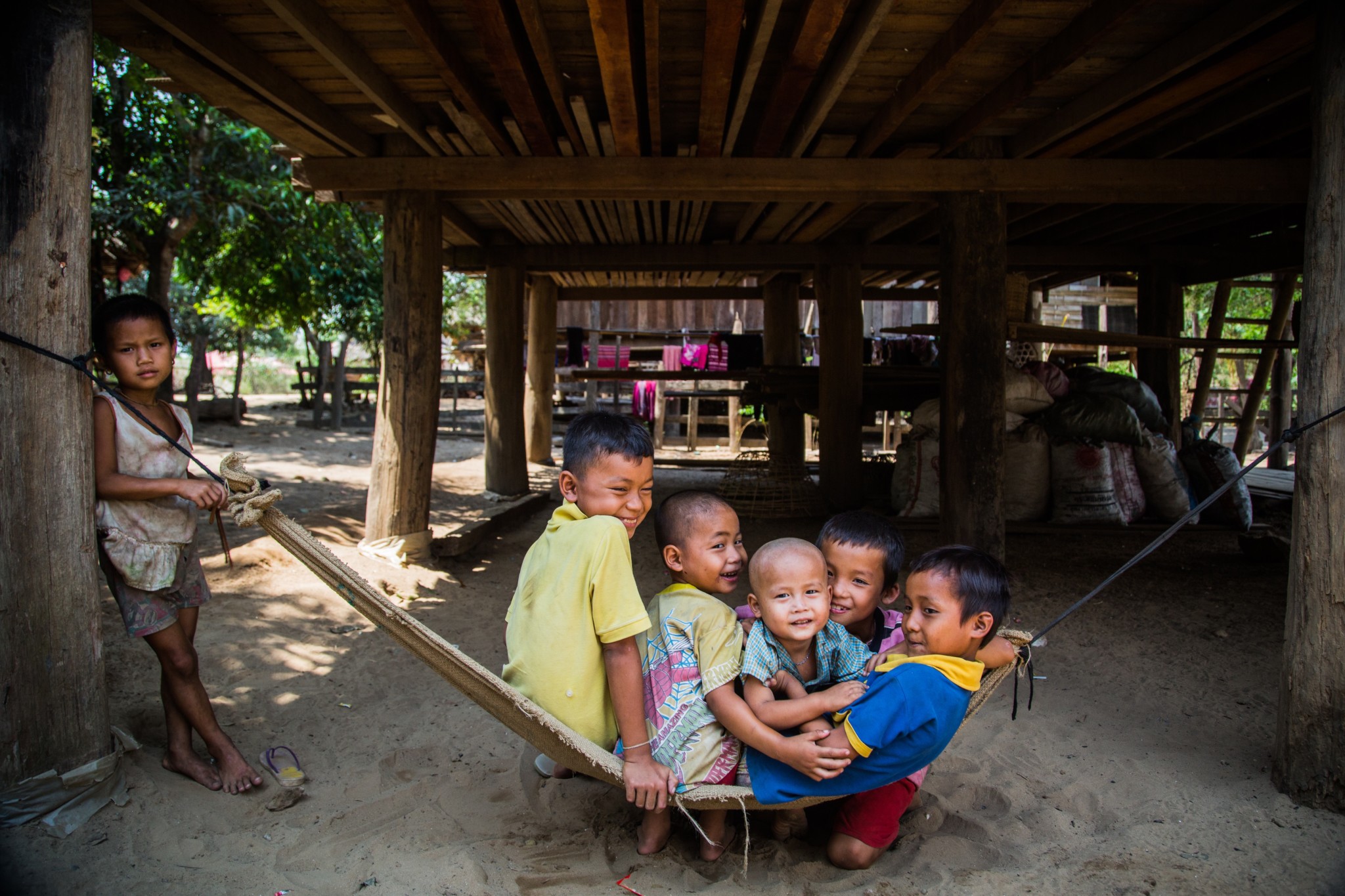
My stay in this small border village was only four days. Each day would start the same: Sophia, my host, would set out a tray of hot water, small pink cups, and instant cappuccino packets. I would climb down a narrow set of stairs from the flat, wooden, second story of Sophia’s home and sit outside at her family’s twenty-foot wooden table. By 7 AM the temperature would already be around 100 degrees Fahrenheit. Most mornings Sophia’s daughter would sit with me, playing on an old smartphone and watching Youtube videos in Thai. To my amazement, more villagers have access to 3G cell service than electricity.
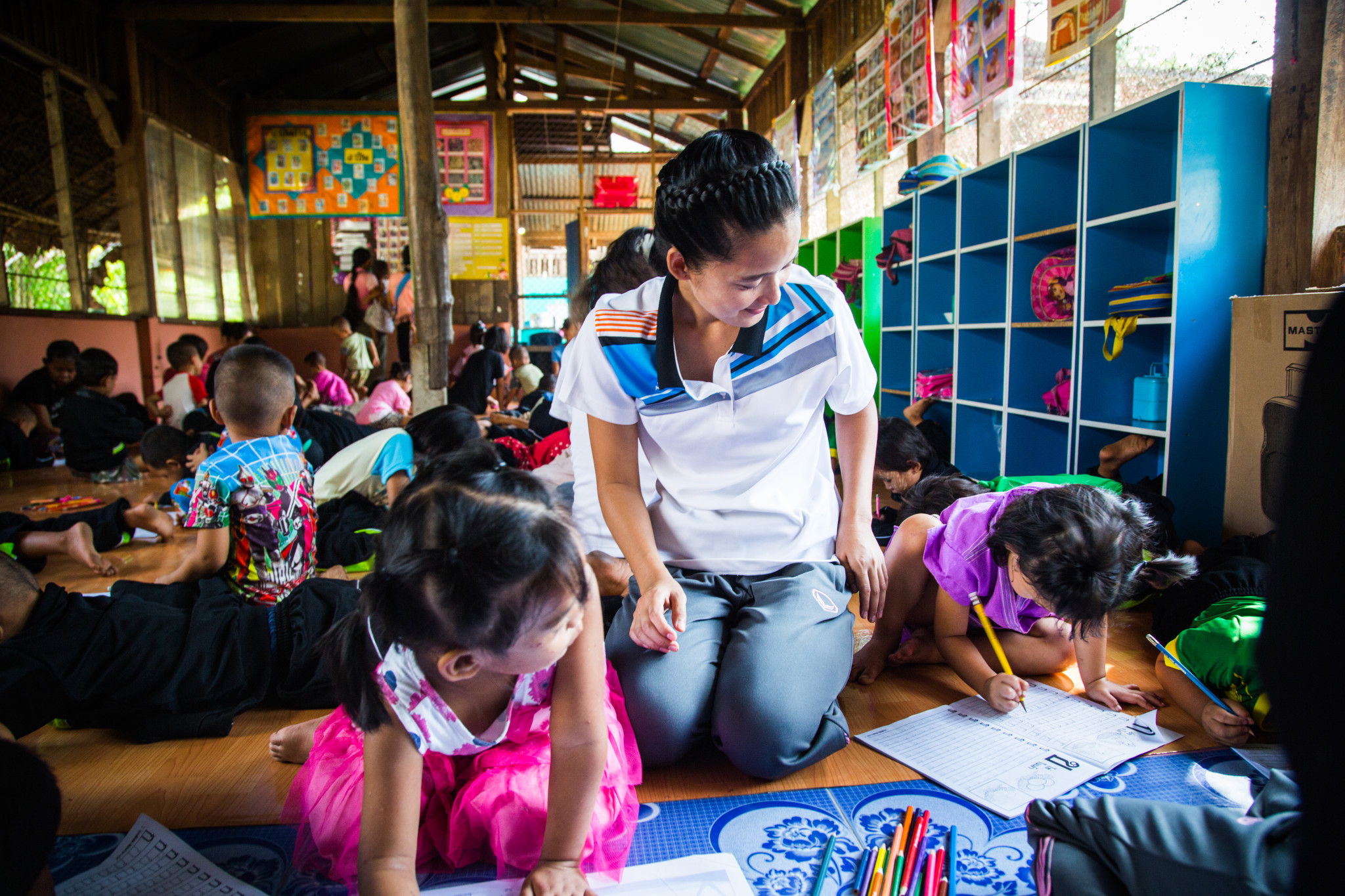
Sophia is something of a leader in the village. Her father is the pastor of the village’s Christian church and owns the only general store in the village. The villagers call Sophia’s father Pastor Smiley–which after meeting the jolly, elderly man it’s immediately clear why. Sophia grew up in this small Karen village and is Karen herself. Unlike most of the villagers though, Sophia has legal papers that prove she was born in Thailand, which qualifies her for citizenship. Sophia did well in secondary school, went to university in Mae Sot, and graduated with an accounting degree. Instead of staying in the city and finding a relatively high paying job, Sophia returned to her home village to help children and families living in poverty.
Sitting at her family’s large wooden table, sweating in the morning Thai heat, Sophia summarized the complicated issue of statelessness for me:
“The first and most important thing is citizenship. They (villagers) do not have citizenship; they are stateless people, which means they have no rights to go anywhere, to travel anywhere, to leave this place to find work. The second biggest problem is no education. The parents have very, very little education if any, and they cannot find a job to help support their families here in this country. The third problem is they have no land. Because most of them have migrated from Myanmar, they have no land of their own, they are on other people’s land, so they cannot farm their own food, they can not grow their own vegetables and help themselves survive off the land because they have none.”
Sophia smiles a lot, but at this point in our conversation her tone takes on an air of seriousness. I ask her if she ever regrets moving back–noting the towering and issues of marginalization, conflict, statelessness, and extreme poverty. She takes a second to think about the question, nods slowly, and carefully says “even though I am just a little person, I am in a big job, and God has built me up to be a strong person.” She admits to me that at first, she thought “what am I doing here?” But now the children at her church call her “big teacher,” a term of respect and admiration.
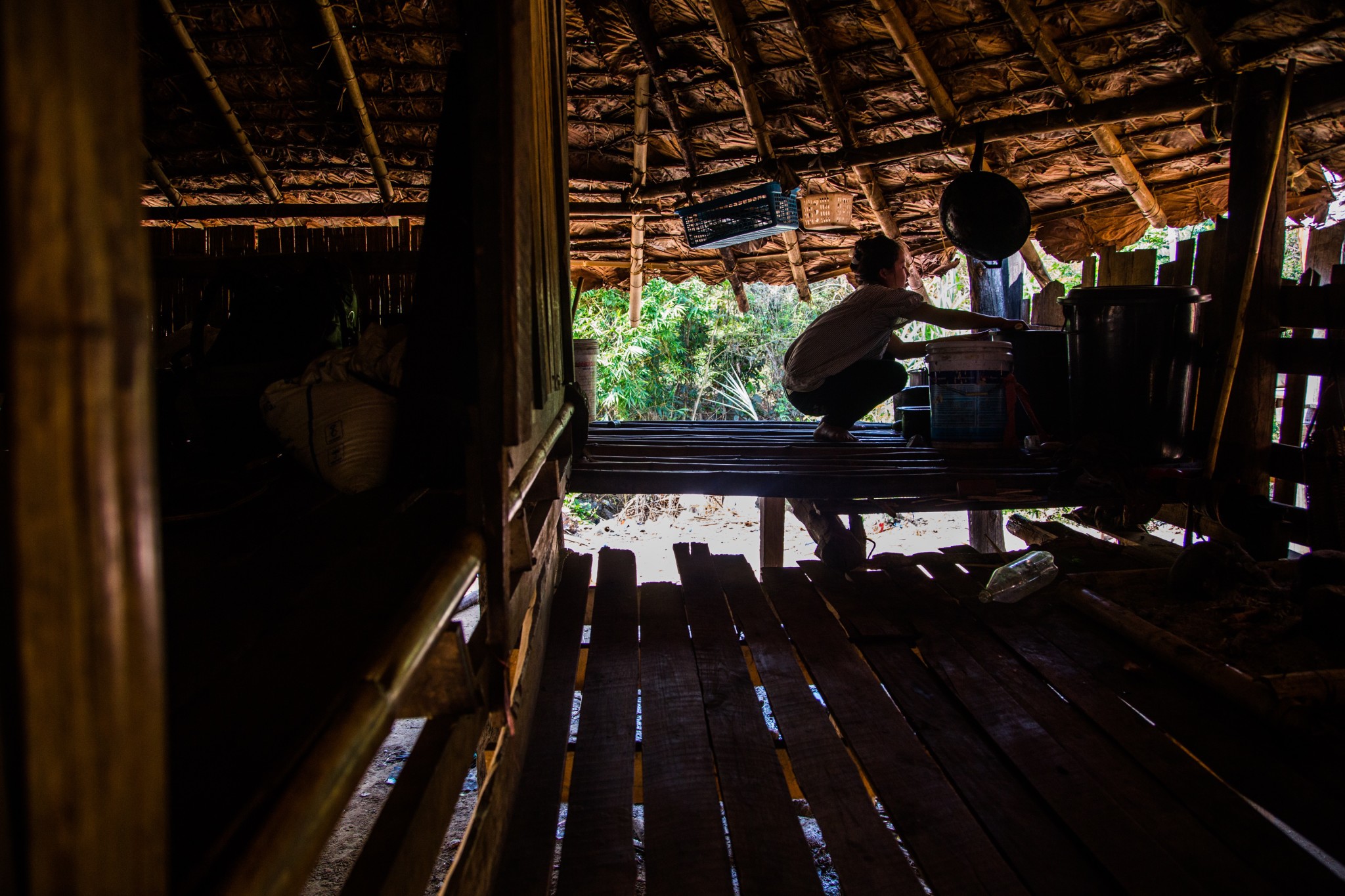
The day started like most days–Larpopo had gotten up early to boil water for the morning’s rice.
The day started like most days–Larpopo had gotten up early to boil water for the morning’s rice. As soon as all her siblings were finished eating breakfast, 14-year-old Larpopo went down to the river to wash clothes. When she came back from the river she was shocked to find their hut on fire, flames dancing and smoke billowing from the roof.
Larpopo stares at the ground with heavy eyes as she recalls the scene well: “everything was burning and everyone was coming to help calm down the fire. And when I closed my eyes all I could still see was fire. And all of our pots and bowls and dishes had been burned up.”
As she answered my questions Larpopo’s face was distant and lonely. She took careful pauses between words, speaking in her native Karen language. Larpopo has a solemnity about her–a heaviness most 14-year-olds won’t know or experience until much later in life.
Larpopo is the head of her household, in charge of her four siblings, two of which have special needs. Long before the fire, Larpopo’s parents traveled to Bangkok to seek menial work. Like Larpopo, her parents are stateless, which means they must work under the table for low wages. At first, Larpopo’s parents sent money back, but that soon stopped. Larpopo still hopes that one day her parents will return home, but others in the village have a more realistic and less optimistic opinion. Larpopo admits that she wishes she could help them, but all she can do “is pray for them.”
An international nonprofit helped Larpopo rebuild the fire-damaged hut before the rainy season, and also bought extra food and replaced their cooking utensils. Larpopo and the children receive medical care and education from various nonprofits that are working in the area. When I asked Larpopo what she wanted to be when she gets older she quickly said, “a teacher.” When I asked her why a teacher, her face lit up, and smiling she said confidently, “I want to be a teacher because I want to teach the children. And I want to give them an education. And also I want to teach them about the love of Jesus in their life.”
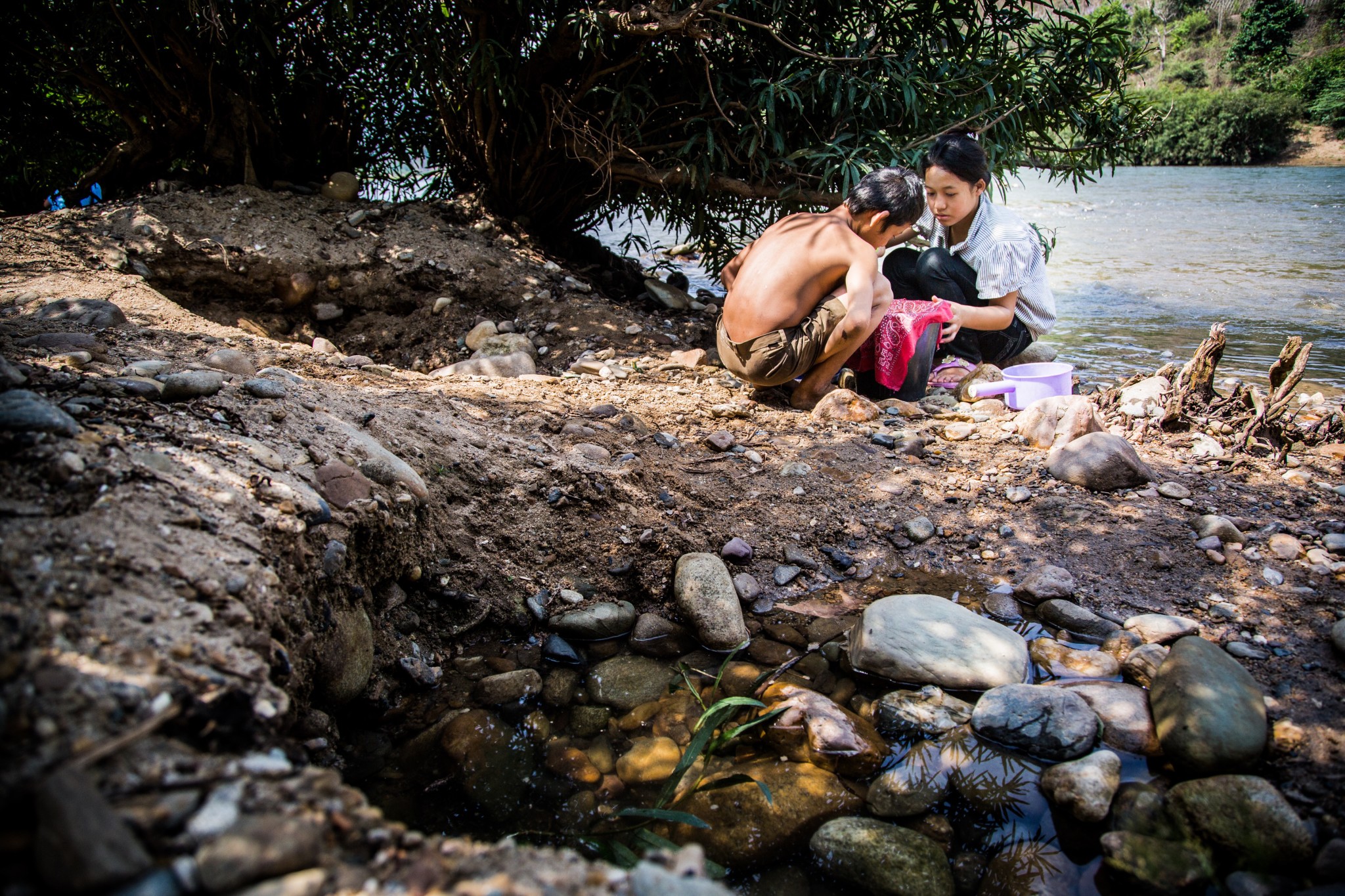
Maybe Larpopo understands and is just stubbornly optimistic, or maybe she hasn’t yet felt the crushing marginalization of her situation. Being stateless, Larpopo will have trouble attaining a secondary education, much less college or university. Without Thai citizenship, Larpopo can’t legally be admitted into a public university. And the even bigger issue–she can’t travel outside of her small village. Police would stop Larpopo from traveling on the highways without proper Thai identification. Larpopo has the dreams of a child, the responsibility of an adult, and the statelessness of a refugee. And there’s not much anyone can do about it.
Sophia told me “we just got some sewing machines in, and my hope is that we will be able to teach her (Larpopo) to sew and give her a sewing machine for her to have at the house, and that will be a job for her.” And that’s the hope–that a child who dreams of being a teacher will be a seamstress.
And that’s the hope–that a child who dreams of being a teacher will be a seamstress.
I couldn’t help but feel moved by Larpopo’s dreams–moved by her seriousness and wiry optimism in the face of so many unfair barriers. Maybe the hope is this: that Myanmar’s wave of democratic fervor will give equal rights and representation to Karen tribespeople like Larpopo. And until then heroes like Sophia will continue to stand up for people like the Karen–the marginalized, the refugees, the stateless. And that’s a beautiful thing, more beautiful even than a sunset over Thaunggin Moei river.
*Please don’t read anything into the using of Myanmar over Burma or vice versa. By using Myanmar I am not siding with a government or showing opposition or support for any government. It’s a complicated issue and I decided to trust the word choice of those people I met and spent time with.
 Previous post
Tayla Hackett – Senior Photos
Previous post
Tayla Hackett – Senior Photos
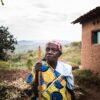 Next post
Rwanda – Compassion International
Next post
Rwanda – Compassion International
